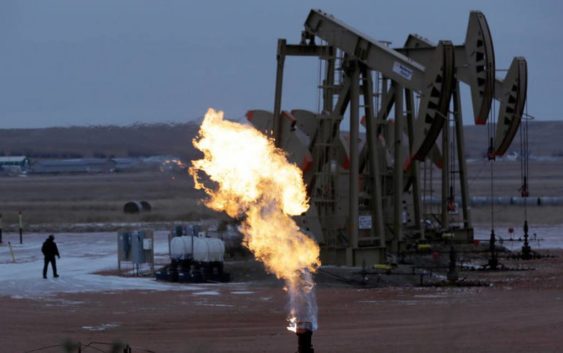- One set of evacuation orders lifted in Caldwell County after wildfire contained
- 'We gutted every building' | Chimney Rock rebuilding after Hurricane Helene
- 'We gutted every building' | Chimney Rock rebuilding after Hurricane Helene
- Debris from Hurricane Helene provides fuel, complicates containment for spring wildfires
- David & Nicole Tepper increase Hurricane Helene relief commitment to $750k
Duke Energy must curb its use of methane. It’s fueling hurricanes.

The latest in a recent string of monster storms, Hurricane Florence again demonstrates the accelerating cost of climate pollution. The people of North Carolina and the executives of Duke Energy – one of the world’s largest utilities – must finally begin an open, democratic discussion about how the Charlotte-based corporation could use its enormous resources to help avert runaway climate chaos.
Cheaper, clean-energy solutions are ready to replace fossil-fueled electricity, and the ticking climate clock demands that Duke Energy begin that transition today. Instead, Duke is going the wrong way. In addition to its decades of burning coal, the utility has been aggressively expanding its use of fracked “natural” gas – methane – while opposing requirements to curb methane venting and leakage. This is amplifying global heating at the worst possible time.
Methane begins trapping heat immediately, spreads quickly across Earth’s atmosphere, and has helped produce record-breaking global temperatures since 2014. Rising global heat is changing the jet stream and weather systems, which amplifies tropical storms and slows them down for prolonged destruction.
Hurricanes aren’t new, but as UNC-CH’s Dr. Jason West recently wrote, “climate change is like putting our weather on steroids … making events like Hurricane Florence more likely or severe.”
A reasonable, conservative approach to the crisis demands that Duke use extreme caution regarding this known hazard: methane.
Millions of people and animals are being devastated each year by climate disasters and the impact falls disproportionately on low-income communities, such as those in the eastern Carolinas that Florence has hammered yet again. The gas-climate connection also increases hazards for thousands of dedicated Duke Energy workers who leave their families to restore power even as storms roar.
United Nations chief António Guterres recently emphasized that “If we do not change course by 2020, we risk missing the point where we can avoid runaway climate change.”
Scientists from National Oceanic and Atmospheric Association, Cornell University and other institutions say curbing methane leakage and venting from the gas-to-power system can have immediate, positive impacts, while buying time to phase out CO2 emissions.
Indeed, if we don’t begin slowing methane emissions, it’s game over. Humanity will soon cross the threshold toward runaway climate, social and economic chaos.
Fortunately, we don’t need the gas. Proven solutions for phasing out all coal- and gas-fired power – such as solar-with-storage and energy-balancing programs – are surging in free markets. They’re cheaper and can be deployed immediately (see our NC Clean Path 2025).
By contrast, Duke Energy’s new 15-year plan dismisses battery storage while projecting construction of 24 large gas-fired plants in the Carolinas. As other utilities and states are moving to go all-renewable, Duke plans to be only 7 percent renewable by 2033 – despite all the slick advertising.
Reasonable people need to connect the dots and demand accountability, such as truly open hearings regarding Duke’s 15-year plan.
Duke and other monopolies should use their enormous resources to help avert climate chaos instead of blocking climate solutions and selling their “clean natural gas” propaganda. And media executives must clarify the issues, especially because corporate giants have bought the silence and support of most of our alleged leaders.
Jim Warren is executive director of NC WARN